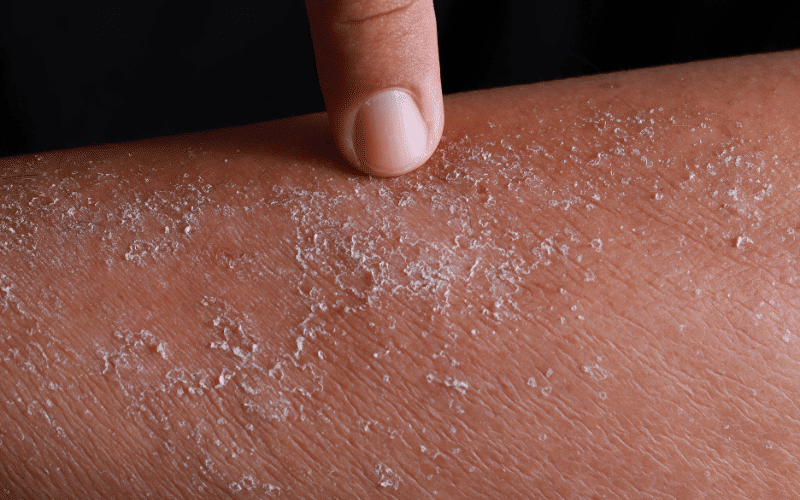Frequently Asked Questions about Atopic Dermatitis Symptoms

1. What causes atopic dermatitis flare-ups?
Atopic dermatitis flare-ups can be triggered by various factors, including environmental allergens (e.g., pollen, dust mites, pet dander), irritants (e.g., harsh soaps, detergents, chemicals), changes in temperature or humidity, and stress. Identifying and avoiding these triggers can help minimize flare-ups and improve overall skin health.
2. How can I alleviate the itchiness associated with atopic dermatitis?
To alleviate itchiness, use over-the-counter anti-itch creams, such as hydrocortisone, or take prescribed medications as directed by your healthcare professional. Keeping the skin moisturized with fragrance-free products and using cold compresses can also help relieve itchiness. Avoid scratching, as this can worsen symptoms and increase the risk of infection.
3. How can I prevent skin infections related to atopic dermatitis?
To prevent skin infections, maintain a proper skincare routine, including regular cleansing and moisturizing with gentle, fragrance-free products. Avoid scratching or picking at the skin, which can introduce bacteria and other pathogens. If signs of infection are present, seek medical attention promptly.
4. Can stress affect atopic dermatitis symptoms?
Yes, stress can exacerbate atopic dermatitis symptoms and even trigger flare-ups. Managing stress through techniques such as regular exercise, meditation, deep breathing exercises, and engaging in hobbies or activities that promote relaxation can help reduce the impact of stress on atopic dermatitis.
5. How does atopic dermatitis impact mental health and quality of life?
Atopic dermatitis can significantly affect mental health and overall quality of life due to the constant itching, discomfort, and visible skin symptoms. These factors can lead to feelings of self-consciousness, embarrassment, and even depression or anxiety. Addressing the psychological aspects of atopic dermatitis through mental health support, coping strategies, and connecting with others who have the condition can help improve overall well-being.
Conclusion: Navigating the Complexities of Atopic Dermatitis Symptoms
In summary, atopic dermatitis presents a wide range of symptoms, including dry, itchy skin, redness and inflammation, scaling and flaking, weeping and crusting, small fluid-filled blisters, lichenification, and sensitivity to environmental factors. These symptoms can significantly impact an individual’s daily life, sleep quality, mental health, and susceptibility to skin infections.
Managing atopic dermatitis requires a comprehensive understanding of these symptoms and their underlying causes. By identifying and avoiding triggers, following a proper skincare routine, and seeking appropriate medical treatment, individuals can effectively manage their atopic dermatitis symptoms and improve their overall skin health and well-being.
Remember to consult with a healthcare professional to develop a personalized treatment plan tailored to your specific needs and symptoms. With the right guidance and support, you can navigate the complexities of atopic dermatitis and enjoy a healthier, more comfortable life.